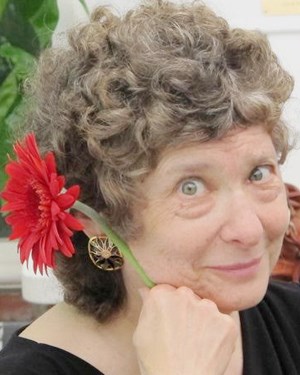
Professor Emerita, Department of Psychological and Brain Sciences
Professor Jacqueline Liederman, a beloved faculty member in the Department of Psychological and Brain Sciences, passed away on January 14, 2019. In her 40-year career at BU, she mentored, taught, and collaborated with hundreds of undergraduate and graduate students and many faculty members, inspiring them with her passion and excitement for teaching, researching and discovering new information about the functioning and development of the brain. She published dozens of papers on the neural correlates of dyslexia and reading disabilities; the role of the corpus callosum in information processing; the neurodevelopment of handedness, interhemispheric cooperation, brain lateralization, and cerebral dominance; and neuroplasticity. She also investigated the genesis of neurodevelopmental disorders, including the role played by genetics, sex ratios of affected families, birth order (e.g., number of antecedent brothers), prenatal, intrauterine, and early postnatal experiences. This work took her to the Faroe Islands, where she investigated neurodevelopmental disorders in babies whose mothers who had ingested high levels of PCBs during pregnancy as a result of eating whale blubber.
Jackie received her B.A. in psychology from Queens College of the City University of New York in 1971, graduated summa cum laude with distinction, and was elected to Phi Beta Kappa. She completed her Ph.D. in experimental psychology from the University of Rochester in 1977, where she studied with the internationally renowned cognitive neuroscientist Marcel Kinsbourne and did a postdoctoral fellowship at the Hospital for Sick Children, Learning Disabilities Clinic from January to September 1978. She joined the BU Psychology Department in September 1978 and was also a faculty member in the Undergraduate Program in Neuroscience, the Behavioral Neuroscience Program, and the Department of Applied Linguistics. She served as Chair of the Ph.D. program in Brain, Behavior, and Cognition from 1996 to 2006 and was active in promoting women in science in all of her many roles, as well as through the BU organization ARROWS.
Jackie was a brilliant and revered teacher and mentor, receiving numerous teaching and advising awards. She was nominated and short-listed for the Boston University Metcalf Award for Excellence in Teaching and received the Templeton Award for Excellence in Student Advising and the Dean’s Award for Excellence in Teaching. Her students remember her as inspirational and rigorous, challenging them to be curious and to engage in critical analysis. A former student wrote, “I felt that I learned every time I heard her talk”; and others observed that “Jackie was a great mentor and believed in me”; “Jackie had a profound influence on my life and my career”; and “Jackie sparked my interest in neuropsychology and changed the course of my studies and my future.”
A colleague noted that “she kept track of students for decades, spoke of past students with love and pride, and continued to be a guiding force for them.” Other colleagues remembered her as “brilliant”, “extraordinarily kind”, “supportive”, “upbeat”, “witty”, “wry”, “self-reflective”, “realistic”, “honest”, and as “having a wonderful sense of humor.” One described her as “a true intellectual who found science thrilling”; another as “fearless and tenacious. She fought to protect the people around her and made us all better.” And finally, she was described as a “brilliant, selfless academic whose entire focus was on shining intellectual light into dark corners, and bringing good to the world in every way that she could.” Jackie faced a number of health challenges, including Parkinson’s disease, with optimism, determination, and a commitment to living life fully. She leaves behind her husband, Les Kaufman, a Professor in the BU Biology Department, her son Justin (BU CAS ’09) and his wife Sarah. Jackie’s legacy will live on in the generations of students whose lives she touched and in the work of innumerable scholars who are building on her research findings. She will be greatly missed.